Mackay cabinet
The Mackay cabinet was the cabinet of the Netherlands from 21 April 1888 until 21 August 1891. The cabinet was formed by the Anti-Revolutionary Party (ARP), Independent Catholics (Ind. C.) and Independent Protestants (Ind. P.) after the election of 1888. The centre-right cabinet was a majority government in the House of Representatives. Aeneas Mackay of the Anti-Revolutionary Party was Prime Minister.
| Mackay cabinet | |
|---|---|
20st Cabinet of the Netherlands | |
| Date formed | 21 April 1888 |
| Date dissolved | 21 August 1891 (Demissionary from 9 July 1891) |
| People and organisations | |
| Head of state | King William III (1888–1890) Queen Wilhelmina (1890–1891) |
| Head of government | Aeneas Mackay |
| No. of ministers | 8 |
| Total no. of members | 10 |
| Member party | Anti-Revolutionary Party (ARP) Independent Catholics (Ind. C.) Independent Protestants (Ind. P.) |
| Status in legislature | Centre-right Majority government |
| Opposition party | Liberal Union |
| Opposition leader | Hendrik Goeman Borgesius |
| History | |
| Election(s) | 1888 election |
| Outgoing election | 1891 election |
| Legislature term(s) | 1888–1891 |
| Predecessor | J. Heemskerk cabinet |
| Successor | Van Tienhoven cabinet |
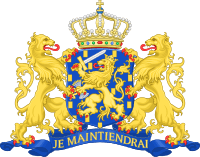 |
|---|
| This article is part of a series on the politics and government of Netherlands |
|
|
Local government
|
|
Related topics |
Cabinet Members
| Ministers | Title/Ministry | Term of office | Party | |||
|---|---|---|---|---|---|---|
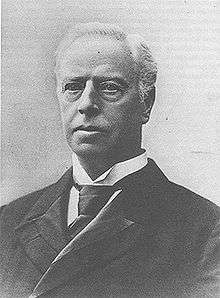 |
Baron Aeneas Mackay (1838–1909) |
Prime Minister | 21 April 1888 – 21 August 1891 |
Anti-Revolutionary Party | ||
| Minister | Interior | 21 April 1888 – 24 February 1890 [Appt] | ||||
.jpg) |
Jonkheer Alexander de Savornin Lohman (1837–1924) |
24 February 1890 – 21 August 1891 |
Anti-Revolutionary Party | |||
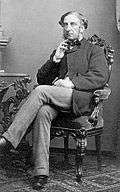 |
Jonkheer Cornelis Hartsen (1823–1895) |
Minister | Foreign Affairs | 21 April 1888 – 21 August 1891 |
Independent Conservative (Liberal Conservative) | |
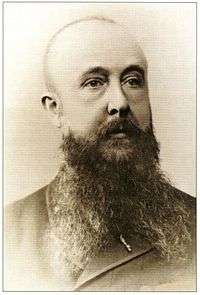 |
Jonkheer Karel Antonie Godin de Beaufort (1850–1921) |
Minister | Finance | 21 April 1888 – 21 August 1891 |
Anti-Revolutionary Party | |
| Jonkheer Gustave Ruijs de Beerenbrouck (1842–1926) |
Minister | Justice | 21 April 1888 – 21 August 1892 |
Independent Christian Democrat (Conservative Catholic) | ||
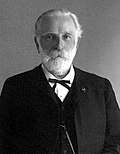 |
Jacob Havelaar (1840–1918) |
Minister | Water Management, Commerce and Industry |
21 April 1888 – 21 August 1891 |
Anti-Revolutionary Party | |
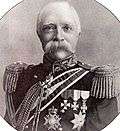 |
Major general Johannes Bergansius (1836–1913) |
Minister | War | 21 April 1888 – 21 August 1891 |
Independent Christian Democrat (Catholic) | |
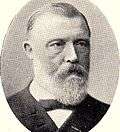 |
Rear admiral Hendrik Dyserinck (1838–1906) |
Minister | Navy | 21 April 1888 – 31 March 1891 [Res] |
Independent Conservative (Liberal Conservative) | |
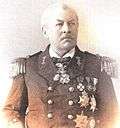 |
Rear admiral Gerhardus Kruys (1846–1916) |
31 March 1891 – 21 August 1891 |
Independent Christian Democrat (Protestant) | |||
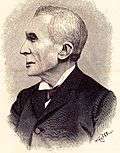 |
Levinus Keuchenius (1822–1893) |
Minister | Colonial Affairs | 21 April 1888 – 24 February 1890 [Res] |
Anti-Revolutionary Party | |
 |
Baron Aeneas Mackay (1838–1909) |
24 February 1890 – 21 August 1891 |
Anti-Revolutionary Party | |||
| Source: (in Dutch) Parlement & Politiek | ||||||
- Res Resigned.
- Appt Appointment: Aeneas Mackay appointed as Minister of Colonial Affairs.
gollark: But also do consider the future somewhat because not doing that would be bad.
gollark: Never mind, I checked the internet, now I have a rough idea.
gollark: I have no idea what "thermic analysis" is, but... enjoy?
gollark: I can remember random facts fine, just not... life events, at all.
gollark: I did do geography for a while (pre-GCSEs), but it wasn't grouped in with the science stuff. I've also completely forgotten what we did, so very effective teaching right there.
References
This article is issued from Wikipedia. The text is licensed under Creative Commons - Attribution - Sharealike. Additional terms may apply for the media files.